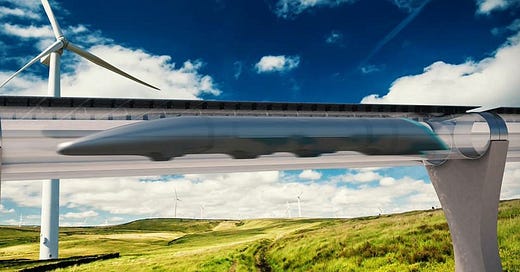Hyperloop is Real
Some of the country's most successful entrepreneurs are pushing forward, and the implications are staggering.
by Rod D. Martin
June 3, 2015
Two years after Elon Musk announced a new "fifth mode of transportation," a lot has happened, however quietly. Some of the country's most successful entrepreneurs are putting significant time - and in some cases cash - into making it a reality.
Forbes reports:
You remember the hyperloop, don’t you? It’s that far-out idea billionaire industrialist Elon Musk proposed in a 58-page white paper in August 2013 for a vacuum-tube transport network that could hurtle passengers from San Francisco to Los Angeles at 760 miles an hour.
Hyperloop has the potential to completely change the way we live and do business. The hyperloop would render "high speed" rail obsolete, and a lot of regional air travel unprofitable at best. Communities that are five hours apart by car would become a breezy 30 minute commute, transforming our understanding of community and distance like nothing in more than half a century. The amount of wealth creation resulting from its widespread adoption…




